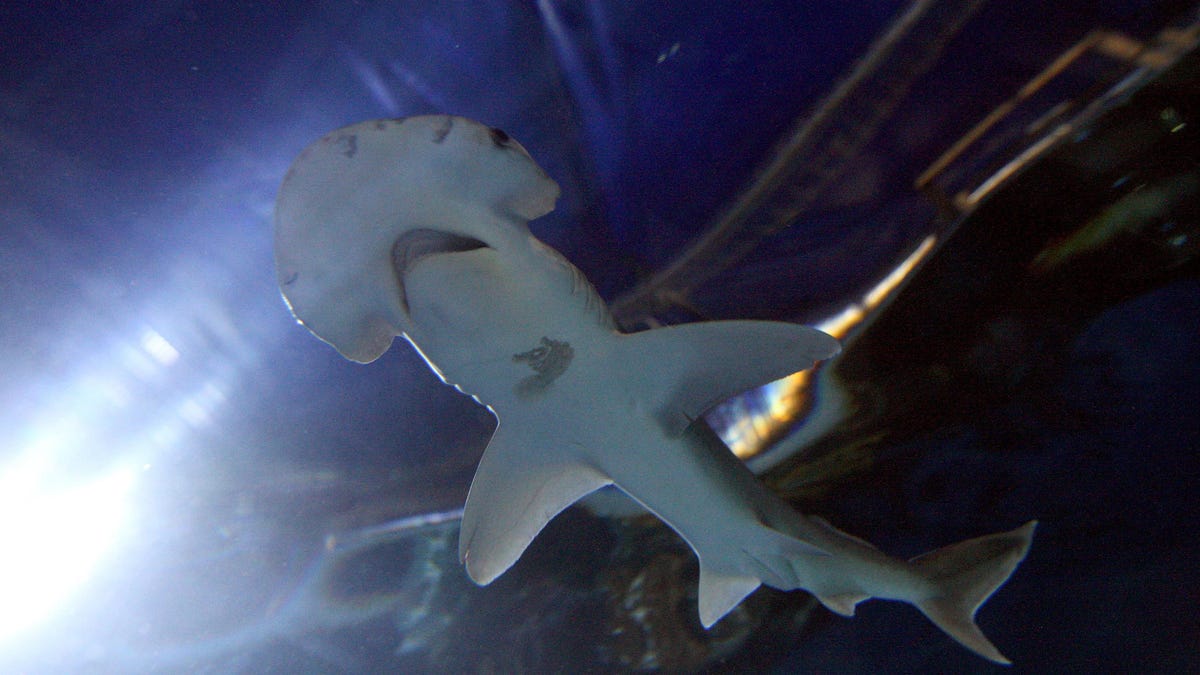Meet the bonnethead, the world's first omnivorous shark
The bonnethead shark is the first omnivore of its kind, incorporating plant in its diet.

One of a pair of new Bonnethead sharks at Chessington World of Adventures, Surrey.
Sharks, we thought we knew you. But it turns out we may have had it all wrong.
Thanks to researchers at the University of California, Irvine, new information has come to light about the bonnethead shark. The sharks were thought to be solely carnivorous, but now there's evidence they're omnivorous -- they can eat both animals and plants.
And that plant is seagrass. While some animals chomp up animal and plant indiscriminately, bonnethead sharks draw valuable nutrients from the seagrass, digesting it properly. The non-plant side of their diet includes crustaceans, squid and mollusks.
This kind of information is beneficial to scientists understanding the ecosystem. Sharks were thought to have stomachs that could only digest high-protein foods and nothing else. Being able to digest plants as well means the bonnethead shark's stomach has different digestive biochemistry.
"Given that bonnetheads have a digestive system that resembles that of closely related species that we know to be strict carnivores, we need to re-think what it means to have a 'carnivorous gut'," research leader and marine biologist Samantha Leigh told CNET in an email.
By working with five sharks in captivity over three weeks, the researchers ran a test involving feeding the sharks a diet of 90 percent seagrass and 10 percent squid. The researchers collected and analysed the faecal matter of the sharks, discovering that around half the organic matter in the seagrass was digested.
"We grew the seagrass in the lab with a special type of chemical tracer, called carbon-13," Leigh explained. "We used this seagrass in feeding trials with the sharks. Throughout the experiment, we would draw some blood from the sharks and check to see if we could find evidence of that chemical tracer, which we did. This was clear evidence that the sharks were assimilating seagrass nutrients."
Now scientists will have to reevaluate the role bonnethead sharks play in seagrass environments and what the implications are.
"In an ecological context, we also need to evaluate the role that this highly abundant shark plays in crucial and fragile seagrass meadow ecosystems so that we can be sure to effective manage these habitats," Leigh wrote.
The research was published Wednesday in Proceedings of the Royal Society B. The findings were also presented at the Society for Integrative and Comparative Biology's annual meeting in January.
First published Sept. 4 10:26 p.m. PT.
Update, Sept. 5 at 4:50 p.m.: Adds comment from research leader Samantha Leigh.
Taking It to Extremes: Mix insane situations -- erupting volcanoes, nuclear meltdowns, 30-foot waves -- with everyday tech. Here's what happens.
Fight the Power: Take a look at who's transforming the way we think about energy.

